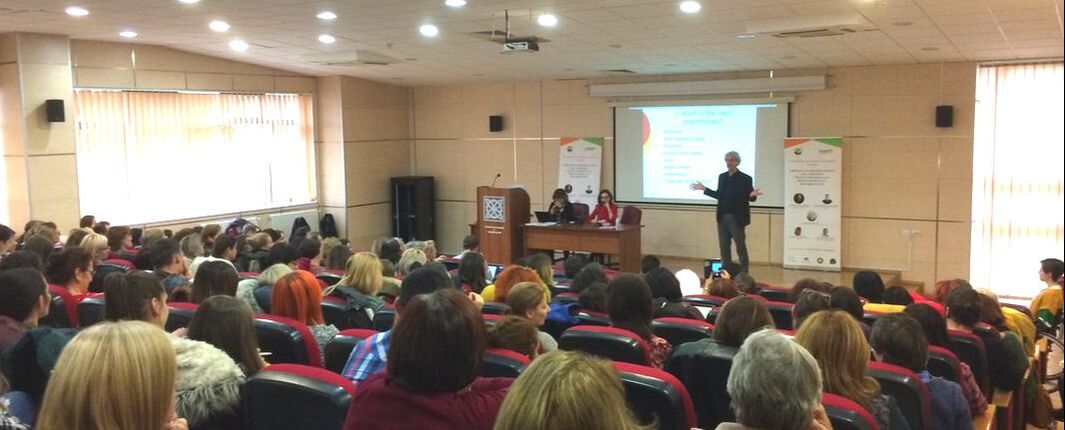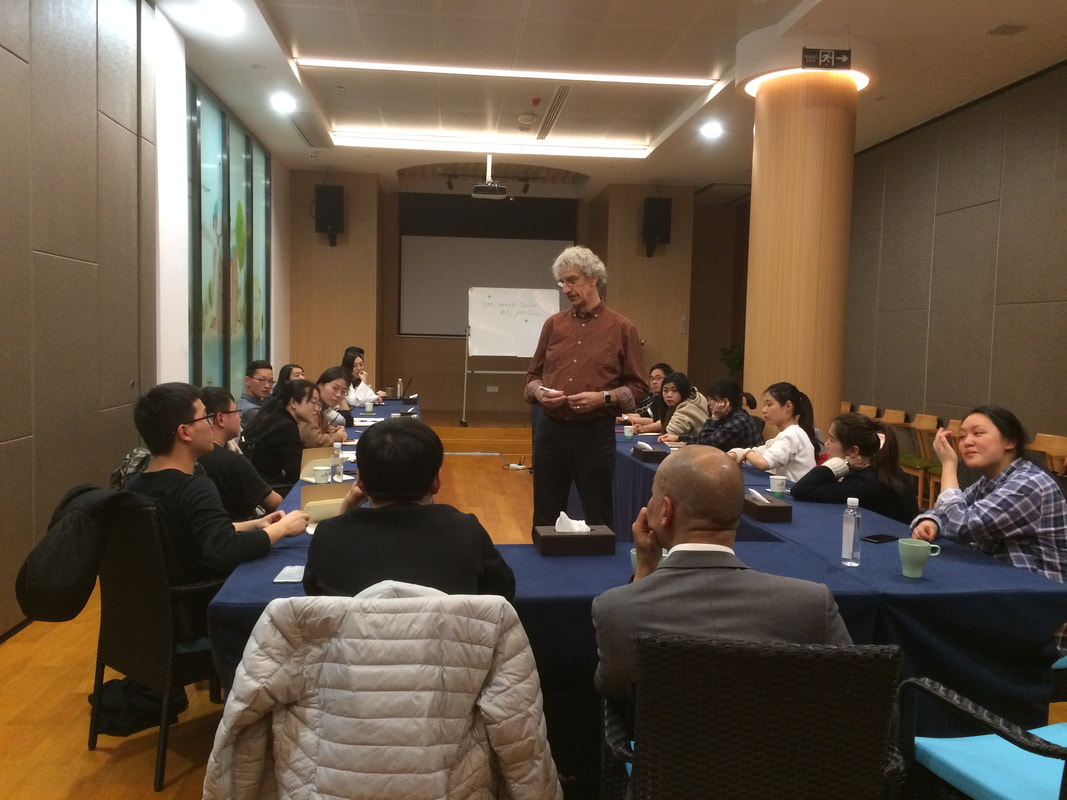INTRODUCTION
|
Geert Bettinger (1952) has a Bachelor and Masters Degree in Social Work, and is a trainer and team coach within care and well being. He teaches employees how to look at ‘problem behavior’ in new ways. By translating 'problem behavior' into Signal Behavior, employees are challenged in a positive way to deal creatively with their own ideas and possibilities. Geert encourages employees to reflect on their share of care-working situations.
He previously worked as a Care Coordinator and teacher at a school for health and welfare, and has also been self-employed as a worker for victims of sexual abuse, a social worker for the elderly, and a nurse for families with mentally disabled children. Geert is happily married and has three sons, three daughters in law, and is a proud grandfather of four grandchildren. |
MASTERCLASSES
|
Geert gives masterclasses and readings at universities, symposia, congresses and institutions for care and well- being. For example students psychology, doctors for dementia-care, nurses for people with developmental disabilities, managers from all kind of educations, family-members of vulnerable people, Not the therapy is in the center from these masterclasses but the needs and desires from the person. It is not a special method, but a change in thinking and attitude about so called 'problem behavior'. Geert calls this signal- behavior. For more information get in touch. See below how to do this.
|

masterclasses in Bucharest, London, Liebenau (Germany) and Shanghai
ABOUT THE BOOK
|
This book is currently published in English, Dutch, Chinese, German, Spanish and Romanian. Also special Dutch copy for education in Care & well-being
|
Is it true that people with developmental disabilities cannot communicate effectively?
How can I understand the mindset of a person with dementia? Why is it good that children from difficult backgrounds sometimes hit out? Care-dependent clients often have no words or dare not speak out if they have problems. Therefore, they regularly ‘have to’ ask for attention to things that are wrong, in their own specific manner. In this book, I describe my vision for the treatment of and assistance to these clients. This book is suitable for use in peer review meetings, both in practice and in education. If we do not make a real effort to understand some of the behaviors of care-dependent clients, we not only miss out on the opportunity to meet the underlying need and truly resolve the issue, but we also might actually cause much greater harm to those for whom we are caring; the hurt of not truly being heard and seen, which leads to deep-seated loneliness. In this book, Geert takes you by the hand and gently walks you toward a whole new level of thinking and approaching situations, and at the end you will find yourself armed with a wealth of possibilities (as long as you allow your mind to shift and remain receptive). This book gives a voice to all those who are dependent on others and, in a way, also to ourselves, as one day it might be we who need compassionate care. Nadine Jans MSc. Founder of Uptimize Coaching, Counselling & Training Ltd. |
BOOKSTORE
You can order the printed book in four languages:
* The English copy is also available as eBook via FriesenPress, amazonkindle, Google play or
iBooks
- For English* go to FriesenPress or amazon
- For Dutch go to SWP, bol.com , or ask me [email protected]
- For Romanian go to Editura Sper
- For Chinese reach out to the author
- For German reach out the publisher DGVT-Verlag
- For Spanish reach out: [email protected] or reach out the author
- Special edition Dutch book for education (care & well-being) Publisher Angerenstein
- there is also a very interesting trainings-app in Dutch: www.geertbettinger.nl
- This same app is even available in German language: www.geertbettinger.de
* The English copy is also available as eBook via FriesenPress, amazonkindle, Google play or
iBooks
REVIEWS |
|
"Moving On by Standing Still offers an open-minded and refreshing approach to understanding and dealing with the "problem" behaviors of care-dependent people." For full review click here.
Kristine Morris Foreword Clarion Reviews "Geert Bettinger speaks to the heart of professional care in nursing homes and elsewhere today. His innovative insight will challenge the reader to a much needed next level of soul filled care."
Ingeborg van Zanten Hayes SBW, Facilitator and Catalyst Bozeman, Montana, USA “I have seldom come across a text where the writer both empathizes with, and uplifts the reader. This is such a text. The regular use of the word ‘we’ touched me to the core. (. . .) I will take this story to heart, even though education is a different line of work than care. What this book has made clear for me is that its message should have a current value in care, not only for outcomes and solutions, but also for the way (or ‘ways’, I should say) of finding better answers.”
Juul Willen, Teacher Radboud University, Nijmegen, the Netherlands |
"Do you know those clients who scream, kick, rock, or run away? Behaviour referred to as challenging or undesirable behaviour. Not by Geert Bettinger. His book discusses the reasons underlying behaviour of care-dependent people. Rather than using a term that solely puts the blame on the client, he prefers the term signal behaviour. Geert Bettinger argues that we, as caregivers should ask what causes this ‘challenging’ behaviour. Let’s make a serious attempt to ‘listen’ to their behaviour. Care-dependent people are usually incapable of telling you in words what makes them suffer. They therefore use body language to convey that message. But it is not always simple to read that language. Hank, whose social-emotional development does not exceed that of a one-year old, often wobbles on his chair while in the community room. He then walks to the window, puts his face against the glass for a while and returns to his seat. After a while the routine starts all over again. What was Hank trying to tell us? One of the caregivers mimicked Hank’s behaviour and felt the nice cool feeling of the glass against her face. Perhaps Hank was always hot when he spent time in that room. Indeed, after they decided to give him less clothes to wear, the behaviour stopped. By listening to Hanks body language, we heard what he was telling us."
Prof. dr. Anna M.T. Bosman, Professor - Behavioural Science Institute; Director of education - School of Pedagogical and Educational Sciences; Professor - Orthopedagogics: Learning and Development, The Netherlands |





